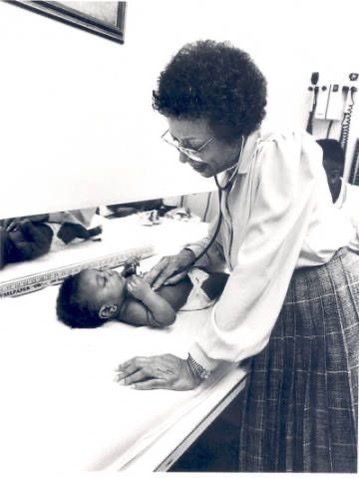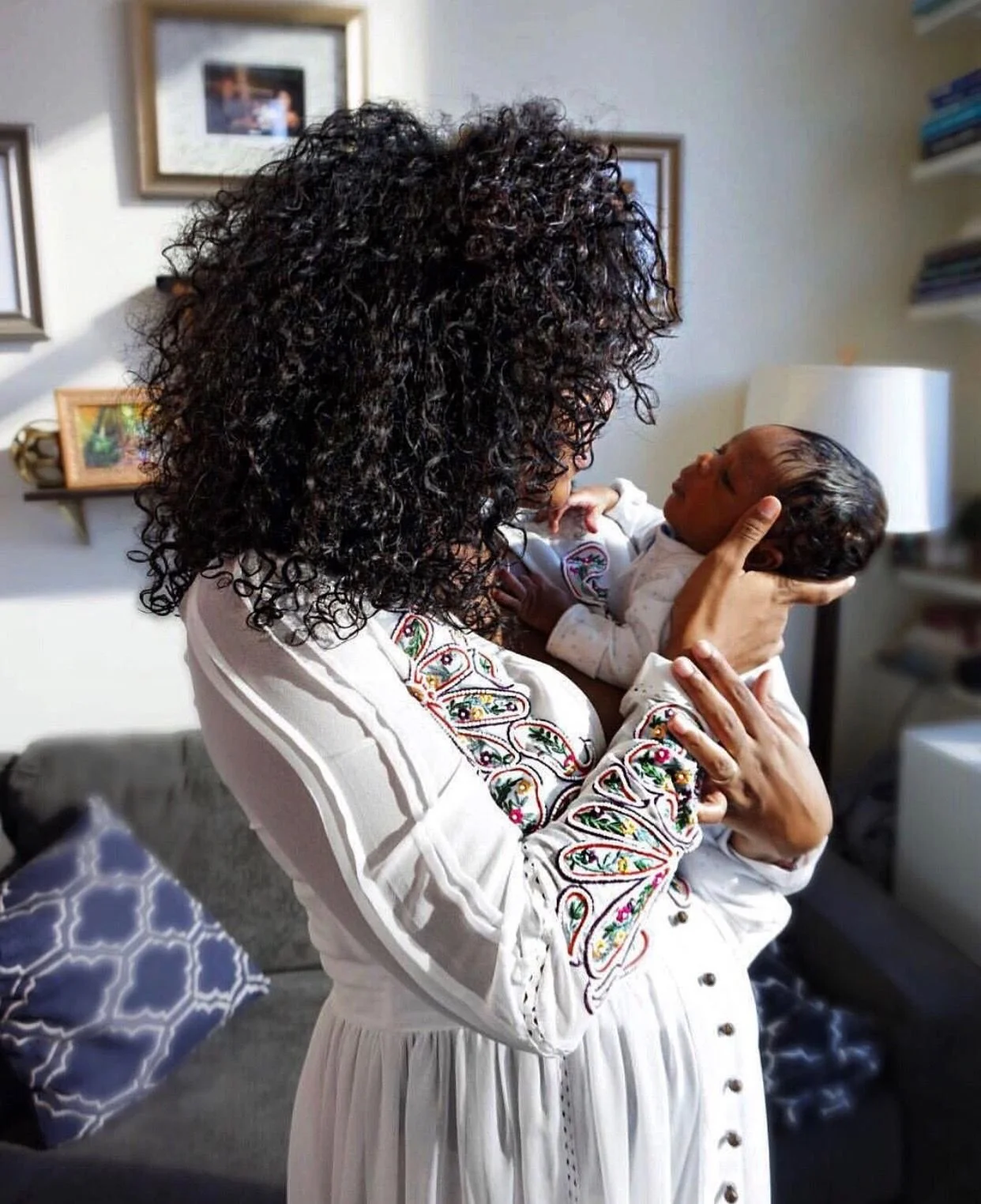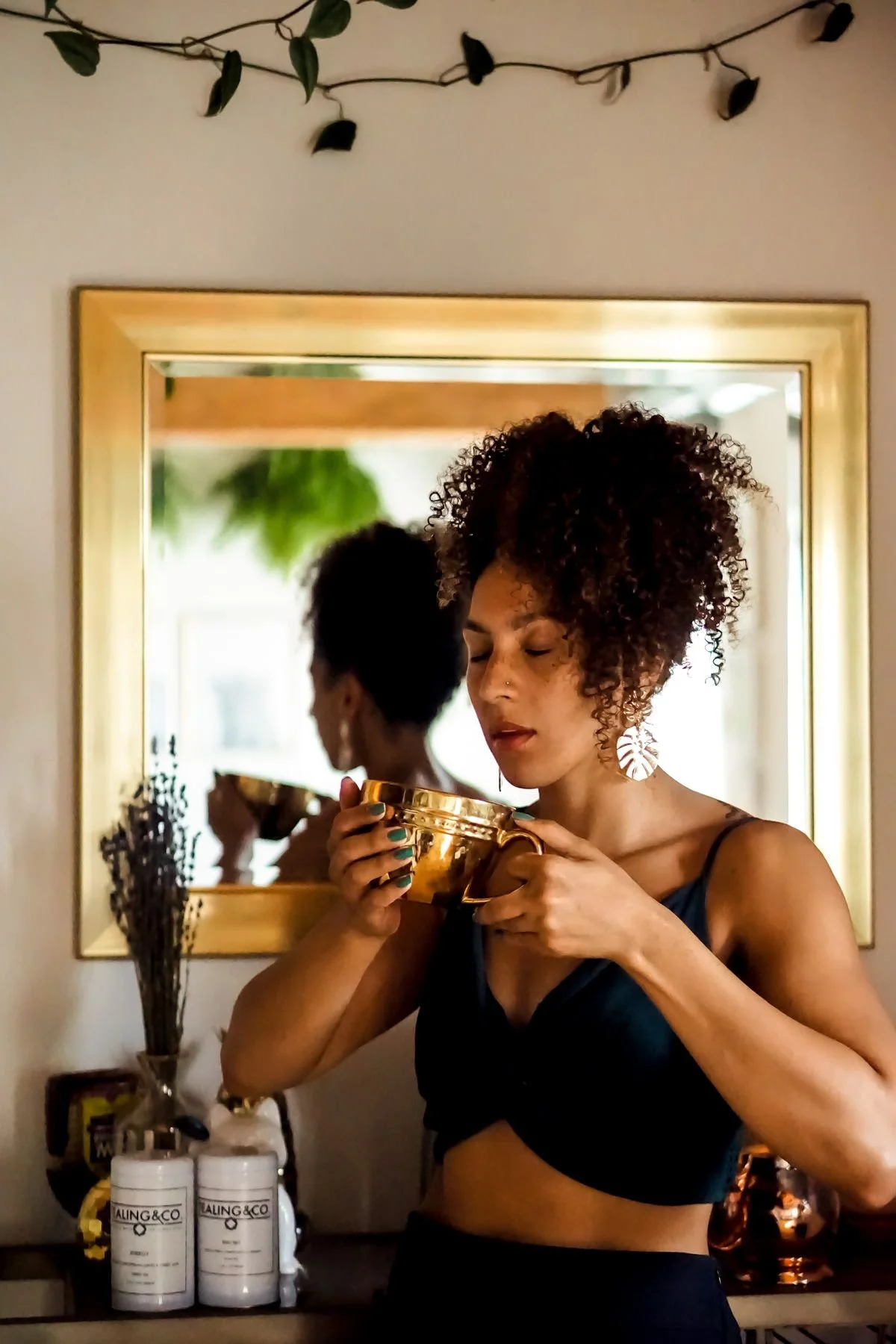Black maternity in New York City: what to know, how to act
Pregnancy is a delicate yet powerful and intrinsic journey that the human body embarks on, for those who have a uterus. Had there always been accessible means to spread educative programs and non-racist practices, today African American women wouldn’t be facing challenging steps during this natural process and phase of life.
Lately, I’ve been a bit more attentive in regards to the pregnancy matter as I’ve been witnessing an exponential number of peers getting pregnant as well as celebrities that a lot of Gen Z and Millennials grew up with - think of successful fashion entrepreneur Rihanna or fashion journalist Elaine Welteroth. My discussions with a few of my female friends sparked an interest in me that I intend to explore through focused research sided by academic journals and verified medical resources.
The journey of pregnancy can scare and turn into a destabilizing experience, if not approached with the right means, counseling, and support. A pregnant person is asked to be careful about what they eat, move, or put on the surface of their bodies, as it can be harmful to the child inside them.
In a fast-paced city like New York, women live pregnancy in many different ways. Depending on where you live, what kind of community you’re part of, and what type of race and nationality someone holds, being pregnant can be a traumatic or difficult experience.
Since I am not a doctor nor in the medical field, I decided to utilize social justice for denouncing the medical issues around women of color here in the US when they’re pregnant, specifically by highlighting the problematic dynamics and realities when it comes to access to healthy and sustainable diets, along with eating habits. I chose New York City to be the scenario of this study, as it’s a remarkable site whose Black population was greatly impacted by COVID-19.
The city of New York counts approximately 25% African Americans out of the total population. Among these, 100 thousand have partial African ancestry. While scholars and the general public are aware of the many injustices that Black women in the US go through on a daily basis, when pregnant African American women seek guidance and support from other people is often overlooked and not taken in a serious way, particularly in places like hospitals.
Most of the current Black American women that are getting pregnant belong to the Millennial and Gen Z generations. These two generations are known to be outspoken with activist-oriented tendencies, through which they question and denounce authorities’ activities. With the rise of platforms and groups like Black Lives Matter and an increasing interest in holistic culture (associated most of the time with the African-Diaspora culture), African American women are taking more precautions in taking care of their bodies, in order to not depend on medical institutions, where they are most likely ending up encountering biased medical opinions and racist behaviors from the professionals.
Around 2017, African American women were “ 12 times more likely to die than white mothers” in New York City, according to an article written by Nina Martin, (ProPublica), and Renee Montagne, (NPR News). Fast forward to the next decade, the situation hasn’t gotten any better: “Each year in the United States, about 700 people die during pregnancy or in the year after”, says the CDC. The issue here is blatant: Black maternity is at risk and members of the Black community who aren’t medical experts nor have access to medical knowledge through schools or academia, should have the right to know how to navigate this situation, while also being supportive and at service of their pregnant peers.
Historical background
It is affirmative that “systemic inflammation is related to chronic health conditions (hypertension, asthma), depressive symptoms, IPV and employment status in pregnant African American women” (Saadat et al., 2021). Living in the USA as a Black woman, especially in areas beyond bigger metropolitan areas, can be exhausting. Women are a targeted gender for many reasons and issues. By adding the racial layer, African American women face multiple discriminations that can emotionally and physically damage their bodies. “Depression is another common reaction to trauma and can develop even in the absence of PTSD following exposure to traumatic events, with higher rates found in African Americans than Caucasians”, writes a group of doctors from the Emory University School of Medicine and the Atlanta VA Medical Center. It is important to understand where does this trauma come from in order to stop the intergenerational passage of emotional and cultural wounds.
Prior to the modern days, African American women didn’t have any rights in controlling their bodies and refrain from other external forces, like ownership and bureaucratic dependency on their White possessors.
In the second half of the 19th century, Dr. James Marion Sims performed painful operations on enslaved women for his gynecologist studies. Despite reports of displayed agony, including screaming, it was believed that Black people did not experience pain like White people, so anesthesia was not utilized.
A century later, “other incidents were reported at New York municipal hospital where low-income Black, Puerto Rican, and Native American women were targeted and given unauthorized hysterectomie”, writes Jamila K. Taylor in Structural Racism and Maternal Health Among Black Women.
These are just a few of the injustices and biased treatments that African American women had to endure while pregnant. In addition to these issues related to pregnancy, there’s also a problem in relation to eating habits and healthy diets. In order to have a successful pregnancy and a healthy offspring, it is necessary to be aware of and incorporate a healthy eating lifestyle, prior to, during, and after pregnancy.
A city like New York, which counts all types of foods and restaurants, still has a problem in feeding its citizens equally. This fact has repercussions on African American pregnant women.
The reality of food consumption and accessibility in New York City
Embracing a healthy diet is suggested at any age and for any individual, but it becomes a crucial commitment for women who are pregnant or are planning to become so. “Low-income women are at higher risk of gaining excess weight during pregnancy” (Hill et alt., 2020), while also much more exposed to food desert locations compared to their White counterparts.
The majority of Black and Hispanic communities in New York City reside in boroughs like Harlem, Brooklyn (Bed-Stuy, Crown Heights, etc.), Queens (Jamaica, Elmhurst, etc.), and the Bronx. During the first peak of COVID-19, the urban administration resulted late in their execution to help and provide the right assistance to these groups of people, whose zip code didn’t reflect richer and well-served areas like Manhattan. These communities came across hardships in keeping up with healthy diets, practices, and cures during this global pandemic.
“These disparities are often defined as diets high in fat, particularly saturated fat; low in fruits, vegetables, and whole grains; and high in salt. However, it is important to note that while disparities are often defined on the basis of race and ethnicity, factors contributing to disparities may be more associated with socioeconomic status rather than ethnicity or race”, affirms Jessie A. Satia.
The geography of the city of New York also is very peculiar and worth the analysis.
In his medical journal written in 2010, Adi Segal explains that in New York City “poor neighborhoods most commonly have small grocery stores (bodegas), which often do not provide healthy food options, but rather help perpetuate an unhealthy lifestyle by focusing their advertising on items like cigarettes, alcohol and soda. In these areas, "food deserts" are often formed, where fairly priced, good quality healthy food is unavailable” (Food Deserts: A Global Crisis in New York City Causes, Impacts and Solutions).
It is necessary to have healthy and handy solutions that can help African American women approach to a healthier lifestyle, starting from eating and embracing a holistic approach to eating and dieting.
Handy solutions in the fast-paced life of New York
In order to avoid consuming unhealthy foods during pregnancy, it is necessary to be aware of the pragmatic reality that Black women might face on a day-to-day basis. Other members of the community and their allies should be mindful of the personal background and cultural setting that the pregnant woman faces. If healthier food is distributed in wealthier neighborhoods and is not only far from the woman, but also incompatible with her monthly budget, some pregnant women would get discouraged and purchase faster solutions like microwavable foods or snacks of all kinds. A pregnant woman can also lack a proper kitchen space where she can cook or she can be also unskilled in the kitchen and simply doesn’t know how to cook for herself a diverse spectrum of foods. African American women also might have a different palate when it comes to scents and spices, which they find hard to incorporate if they’re not followed or instructed by someone who understands their culture and heritage, with knowledge of the African Heritage Diet. The variables are multifaceted and personal to the single, but there are a few general rules and programs that African American women can consider. These instructions should serve also as a guideline for non-pregnant women: whoever defines themselves as an ally or active member of the Black community should take these suggestions into consideration if they want to be of aid to their pregnant peers.
Building a safe and supportive space on a digital level, with which is possible to be surrounded by positive and comforting environments. Here there are some creatives and social media activists that can serve as one’s personal comforting hub of support through digital media: Miss Enocha from The Brown Family Project, Aysha Sow, MyLin & Lindsay Stokes Kennedy, Sunni on Tik Tok.
Reaching out to services that can help structuring a healthy diet based on personal tastes and preferences through programs like New York Special Supplemental Nutrition Program for Women, Infants, and Children (WIC), God’s Love We deliver, Urban Outreach Center,
Supporting Black-owned and female-led businesses like Meals For Mama by Hannah Bronfman, and Fourth Phase Afterbirth Box, specifically dedicated to the postpartum phase.
Check Black and Brown doulas, along with other medical figures that can help promote the assistance during pregnancy, like Creole-Bronx based doula services offered at Sésé Birthing Freedom;
Getting educative information at centers like Black Women Birthing Justice, and Mama Glow, founded by Columbia University & The Institute for Integrative Nutrition, Latham Thomas;
Visiting Brooklyn-based collective at Oula, Nourimama.co, or visiting Bronx-located Bx (Re) Birth’s Doula Corps, operating in North, South, East, and West Bronx.
The urban reality and the medical conditions that African American women are exposed to are transparent and alarming from several perspectives. Analyzing and coming to the conclusion that these problems can be diminished by actively sharing the right resources and implementation proposed within the medical spaces is already a solid sign of progress and enlightenment.
African American women have the undeniable right to experience and drive through pregnancy with the most educated and safest strategies in order to secure their own personal health, but also to ensure a pleasant future for their offspring.







